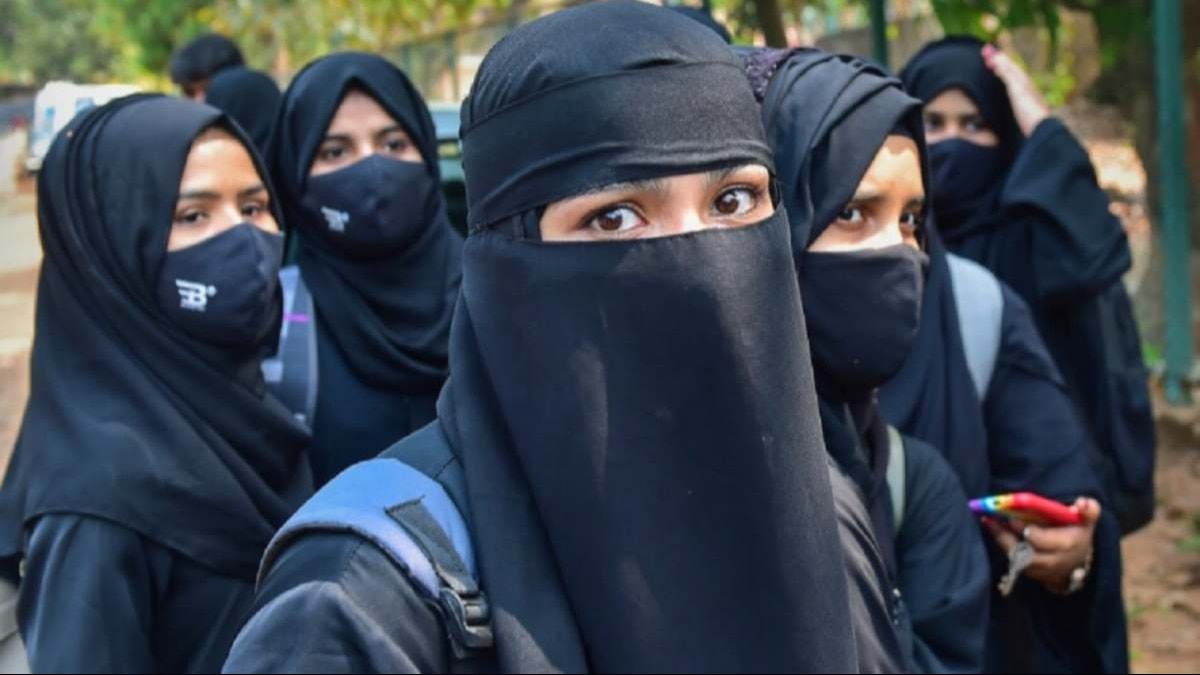
HIGH COURT UPHOLDS HIJAB BAN AT MUMBAI COLLEGE: 'DRESS CODE DOESN'T VIOLATE...'
The Bombay High Court on Wednesday upheld a city-based college's decision to ban the wearing of hijabs, burqas, and niqabs on its premises, stating that such regulations do not infringe upon students' fundamental rights.
A division bench comprising Justices AS Chandurkar and Rajesh Patil emphasised that a dress code is intended to maintain discipline, which falls under the college's fundamental right to "establish and administer an educational institution".
The court further highlighted that the dress code applies to all students regardless of religion or caste, dismissing the petition brought by nine female students challenging the ban.
The students, who are in the second and third years of a science degree course, had filed the petition against the Chembur Trombay Education Society's N G Acharya and D K Marathe College. The college implemented a dress code prohibiting the wearing of hijabs, niqabs, burqas, stoles, caps, and badges on its premises.
The petitioners argued that the ban violated their fundamental rights to practice religion, privacy, and choice, describing the college's action as "arbitrary, unreasonable, bad-in-law and perverse".
However, the court found no violation of Articles 19(1)(a) (freedom of speech and expression) and 25 (freedom to practice religion) of the Constitution. "In our view, the dress code as prescribed cannot be held to violate the petitioners' rights claimed under Article 19(1)(a) and Article 25 of the Constitution of India," the high court bench said.
The bench also dismissed the petitioners' claim that wearing a hijab, niqabs, and burqas is an essential practice of their religion
"Except for stating that the same constitutes an essential religious practice on the basis of the English translation of Kanz-ul-Iman and Suman Abu Dawud, there is no material placed to uphold the petitioners' contention that donning of hijab and naqabs is an essential religious practice. The contention in that regard therefore fails," it noted.
Futhermore, the court underscored that prescribing a dress code should be viewed as an "exercise towards maintaining discipline", a right derived from the fundamental right to establish and administer an educational institution under Article 19(1)(g) (right to practise any profession or run trade/business) and Article 26 of the Constitution.
The dress code is mandatory only within the college premises, and the petitioners' freedom of choice and expression is otherwise unaffected, the court stated.
"The intention behind the dress code is to ensure that a student's religion is not revealed, aiming for the larger academic interest of the students as well as for the administration and discipline of the college," the bench said.
"This is for the reason that students are expected to attend the educational institution to receive appropriate instructions for the advancement of their academic careers," it added.
The court also said, as per the dress code, the students are expected to wear something formal and decent which would not reveal their religion.
2024-06-26T17:49:12Z dg43tfdfdgfd